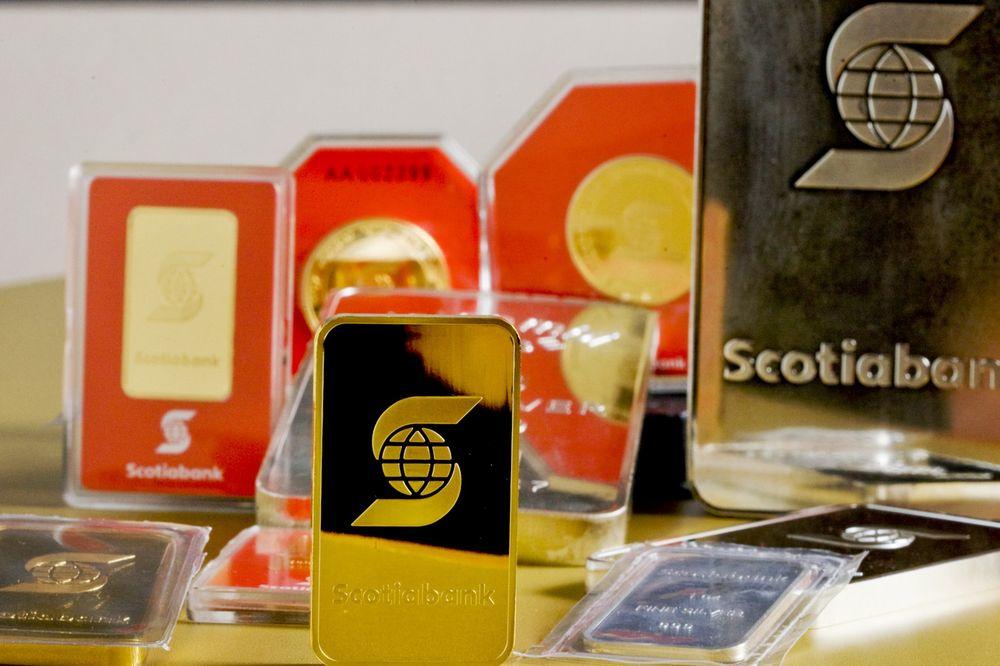The World’s Oldest Gold Trader Is Closing
It all started in late 2017, when we reported that JPM was quietly trying to sell the world’s oldest gold trader after a massive money laundering scandal terminally crippled the reputation of one of the most iconic names in the business, resulting in Canada’s Bank of Nova Scotia exploring options for its gold business ScotiaMocatta. As reported at the time, Scotiabank made the decision to sell ScotiaMocatta following a massive money laundering scandal centered on a US refinery that involved smuggled gold from South America, a fascinating story which we profiled here several years back.
For those unfamiliar, the ScotiaMocatta business better known as the world’s oldest gold trader and a mainstay in PM trading since its founding in 1684 as Mocatta Bullion, was a precious metal and base metal trading company that operated as the metals trading division of the Bank of Nova Scotia.
A few months later in February 2018, we reported that JPMorgan’s attempt to sell the business failed, and one year later, in January 2019 Bank of Nova Scotia quietly dropped the “Mocatta” name from its metals-trading business, shedding the last vestiges of a firm dating back nearly 350 years as the Canadian owner tried to absorb the platform into its capital-markets division.
The restructuring attempt lasted a little over a year, until its failure this week when the Scotiabank told staff on Tuesday it would close its metals business, drawing the curtain on one of the most venerable names in precious metals trading, Reuters reported citing two sources.
Scotia was for years the world’s biggest lender to the physical precious metals industry, with a history stretching to the founding in 1684 of London gold dealer Mocatta Bullion, which it bought in 1997. Once a global player with more than 100 staff in offices from New York and London to India and Hong Kong, the bank effectively exited the business in 2018 following the abovementioned strategic review and unsuccessful attempt to find a buyer.
“Scotia had a global call with all its metals staff and said it was shutting down its metals business,” said a Reuters source. “The plan is to unwind the metals business.”

Scotiabank’s exit of the metals business ends an end of an era that began in 1671 when Moses Mocatta opened an account with one of London’s most famous goldsmith bankers, Edward Backwell. Mocatta and his descendants would go on to build what became one of the world’s largest metals-trading businesses and the oldest member of London’s bullion market. The firm has long participated in the London gold auction, where an industry benchmark price is set twice a day.
Scotiabank came onto the scene in 1997 when it bought the Mocatta Bullion and Base Metals unit from Standard Chartered and renamed it ScotiaMocatta. The Toronto-based bank gained a business with 180 employees and 10 offices worldwide, including in New York, London, New Delhi, Hong Kong, Shanghai and Singapore.
It all came crashing down in 2018 however following a historic money-laundering, metals rehypothecation scandal that wiped out nearly 350 years of good reputation overnight.
Sources told Reuters Scotia would not take on new business and would wind down existing activities by around the beginning of 2021. Some staff would be kept on over that period while others would be made redundant. Around 15 people worked in Scotia’s metals business, Reuters reported,around three-quarters of them in precious metals and the remainder in industrial metals. That compares to around 140 five years ago.
Even after exiting the metals business, Scotiabank will remain one of the five banks that settle gold trades and one of 12 market makers that provide liquidity in the London market. The bank is also a participant in daily auctions that set a globally used gold benchmark price.
That said, without a dedicated metals business, Scotia’s presence in the London gold market will be only symbolic, as the bank hands over the bulk of the business to HSBC and JPMorgan, the two titans who currently dominate the London PM business, and for a good reason: gold trading in London is estimated to be worth more than $5 trillion a year, resulting in some fat commissions for all involved.
Tyler Durden
Wed, 04/29/2020 – 10:44
via ZeroHedge News https://ift.tt/2yVJLz2 Tyler Durden